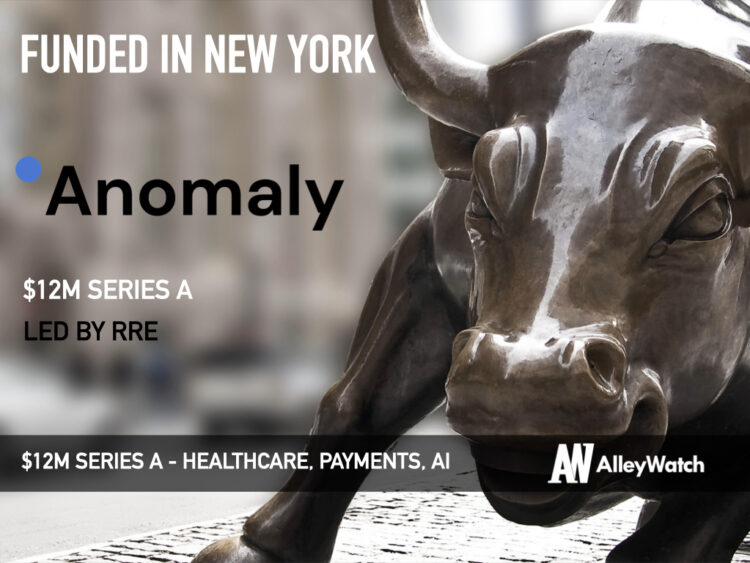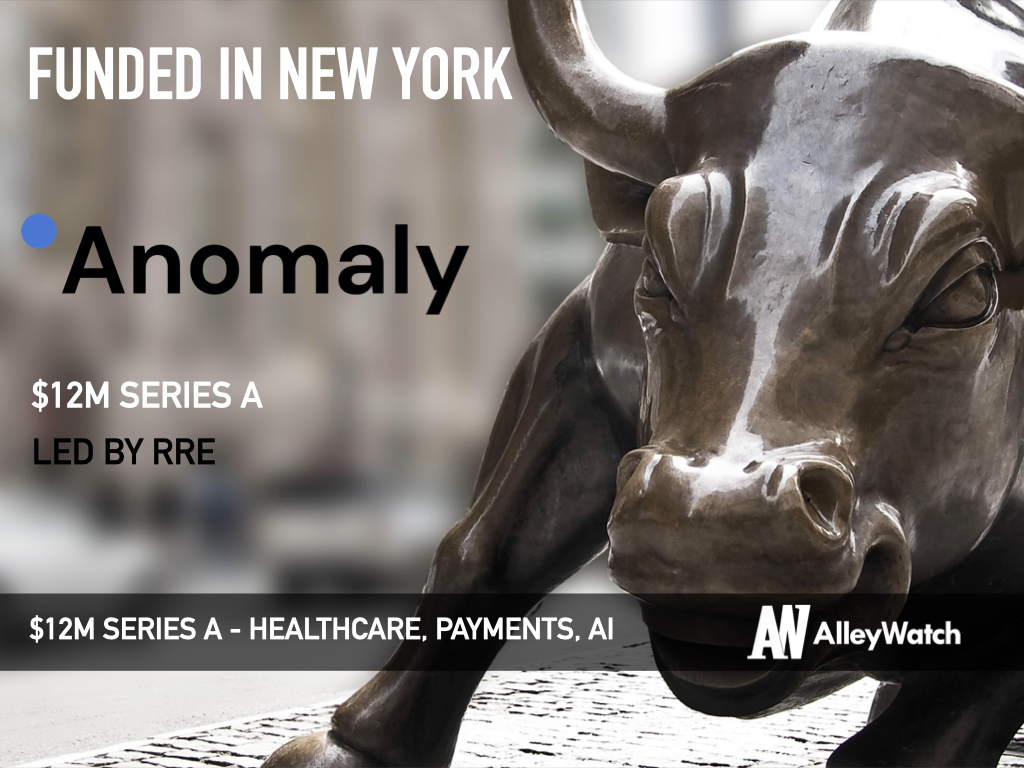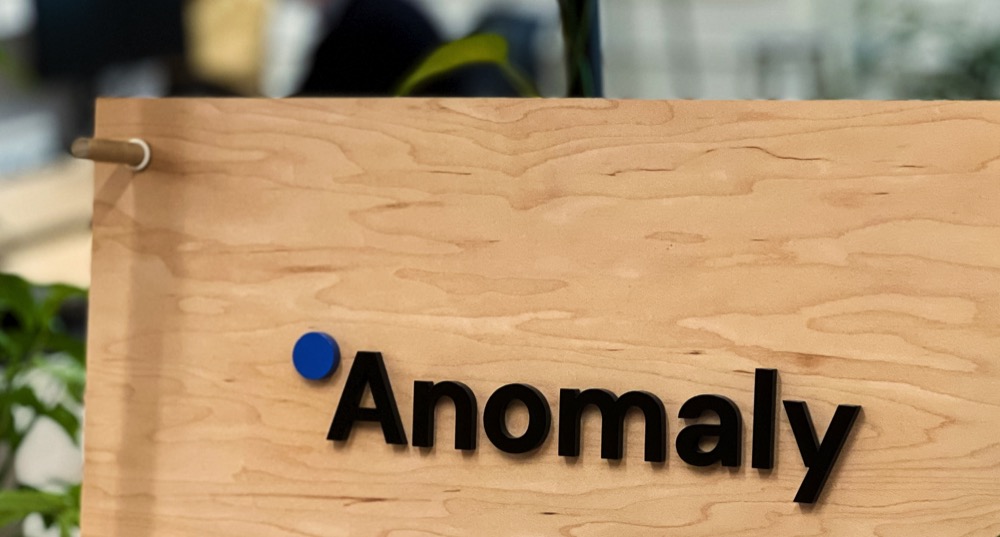Medical billing errors are alarmingly common with as high as 80% of all bills containing minor errors. In the aftermath of the pandemic, half of all Americans now have some form of medical debt, accounting for the largest source of debt that Americans owe collection agencies. Anything to ensure the accuracy of medical bills is a welcome solution to address this growing crisis. Anomaly is an AI-powered platform that integrates with all aspects of the health insurance claim cycle to identify and prevent billing and payment errors before they even happen. By ensuring medical payments are accurate, from the onset, Anomaly reduces the administrative burden for providers while ensuring prompt payments, relieves patients from increasing costs due to inefficiency, and allows healthcare insurers to minimize their overpayments in order to keep premiums down. The cost of this inefficiency in the current system has been estimated to exceed $300B per year.
AlleyWatch caught up with Anomaly Cofounder, President, and COO Jacob Shiff to learn more about how the company is applying technology to claims to ensure accuracy, the company’s strategic plans, latest round of funding, and much, much more.
Who were your investors and how much did you raise?
Anomaly raised $17 million, which includes our recently announced $12M Series A and a previously undisclosed $5M Seed from early 2021. The Series A was led by RRE Ventures and included participation from Link Ventures and existing investors Madrona Venture Group, Declaration Capital, and Redesign Health.
Tell us about the product or service that Anomaly offers.
Anomaly streamlines healthcare payments and improves payment accuracy for healthcare payers and providers. Improper healthcare payments and related costs represent one of the most challenging problems in U.S. healthcare, contributing more than $300 billion in unnecessary costs each year.
Anomaly is working with healthcare payers, claims clearinghouses, and providers to address this critical issue. We integrate at key points in the claims lifecycle to identify and prevent payment and billing errors before they occur. Our AI-enabled solution analyzes billions of medical and pharmacy claims, enabling us to detect emerging trends and identify opportunities to reduce claims errors and overpayments.
What inspired the start of Anomaly?
My cofounder, Jon Hoffman, and I were both at Redesign Health, an NYC-based healthcare venture studio, when we first started working on Anomaly. Jon was the Head of Engineering at Redesign, and before that was Head of Engineering at Foursquare. I was on the new ventures team working on several of Redesign’s early companies. Through this work, we constantly talked with doctors, insurance companies, and patients about the issues that mattered to them most. Jon and I were shocked to learn about the scale of this issue of inaccurate healthcare payments—around 10% of healthcare spend—and the reactive, low-tech way that it is dealt with today. For example, it is typical in the industry for insurance companies to “pay and chase:” overpay the healthcare provider, and then claw back the overpayment after it is identified. This adds friction and cost between providers and payers, and those costs spill over to the patient. The more we dug into the problem, the more we realized that there was an opportunity to leverage analytics alongside domain expertise to identify and address many of these issues. Our conversations with healthcare leaders like Jeff Alter, former CEO of UnitedHealthcare’s commercial business (who would eventually become Anomaly Board Chairman), reinforced the demand for novel proactive solutions like Anomaly. We felt that the challenge was meaningful, high-potential, and intellectually stimulating so we jumped in.
Traditional solutions have focused on an outsourced and reactive approach to dealing with improper healthcare payments. We believe that Anomaly’s collaborative and proactive approach really resonates with payers and providers: partnering with both stakeholders to address the root causes of payment issues, rather than deploying band-aid solutions. Our solution is further differentiated because we are able to identify issues missed by standard tools thanks to our use of advanced techniques and novel data sources, including billions of medical and pharmacy claims.
What market does Anomaly target and how big is it?
Anomaly is tackling the $300B+ problem of inaccurate healthcare payments and associated administrative burden.
What’s your business model?
Our solutions benefit everyone—payers, providers, and patients—but we are primarily paid by health insurers (payers).
What are your post-COVID office plans?
We are still determining our long-term office plans. At present we have a strong remote team across the country and a great office in NYC near Union Square where we regularly convene as a team.
What was the funding process like?
We were fortunate that the fundraise came together more quickly than we anticipated. Anomaly operates at the intersection of healthtech and fintech—two particularly hot areas in venture—so we benefited from a lot of investor interest. We also had a running start because of the participation of our existing investors for our seed round.
What are the biggest challenges that you faced while raising capital?
We kicked off our process in the summer when things typically slow down in the venture community, which occasionally made scheduling a challenge. The other challenge, of course, was juggling running the business with managing a very intensive fundraising process.
What factors about your business led your investors to write the check?
Several factors stood out to investors: the size of the market opportunity due to the significant cost of inaccurate payments; the stodgy existing solutions that predominate today; the strength of our team, which has a unique combination of technology and healthcare talent; and our initial market momentum. From a mission standpoint, many investors also liked that our prevention-oriented solution would ultimately benefit everyone: payers, providers, and patients.
What are the milestones you plan to achieve in the next six months?
Our focus in the coming 6 months is to execute on our initial client engagements; continue to develop our core products; and build up our customer pipeline. In order to do all of this, we are actively growing the team. Specifically, we are currently hiring across engineering and data science, product management, healthcare billing, and payment integrity subject matter experts, and operations.
Our focus in the coming 6 months is to execute on our initial client engagements; continue to develop our core products; and build up our customer pipeline. In order to do all of this, we are actively growing the team. Specifically, we are currently hiring across engineering and data science, product management, healthcare billing, and payment integrity subject matter experts, and operations.
What advice can you offer companies in New York that do not have a fresh injection of capital in the bank?
Ask yourself “What milestones do I need to hit to get to my next round?” and then be laser-focused on reaching those goals.
Where do you see the company going now over the near term?
The core data and analytic capabilities that we are developing naturally extend to adjacent products in the healthcare analytics space. That being said, in the immediate term, we are focused on tackling the complex and expensive challenge of inaccurate healthcare payments, where there is a ton of unmet need and white space.
What’s your favorite outdoor dining restaurant in NYC
Not quite a restaurant, but an office favorite (and frequent presence in the kitchen) is babka from Breads Bakery across the street.







